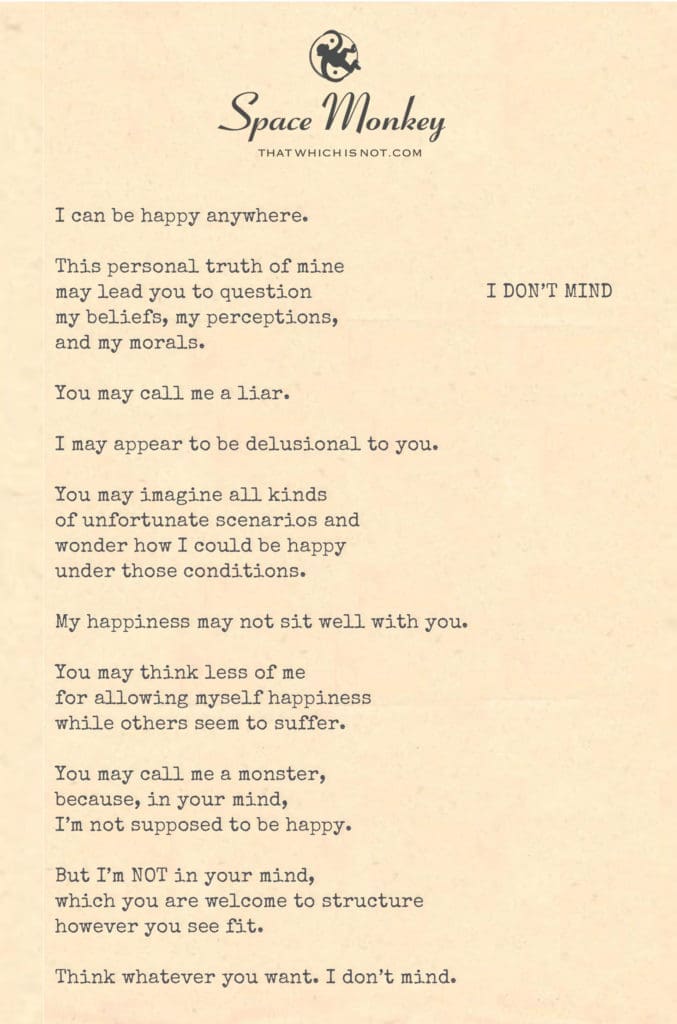
My happiness
is at the root of how
I perceive my reality.
Your happiness
is at the root of how
you perceive your reality.
Why should my happiness
affect your happiness?
Why should your happiness
affect my happiness?
I know how I want
to shape my reality.
How do you wish
to shape your reality?
The answer can be found
in what we are doing right now.
——-
I can be happy anywhere.
This personal truth of mine
may lead you to question
my beliefs, my perceptions,
and my morals.
You may call me a liar.
I may appear to be delusional to you.
You may imagine all kinds
of unfortunate scenarios and
wonder how I could be happy
under those conditions.
My happiness may not sit well with you.
You may think less of me
for allowing myself happiness
while others seem to suffer.
You may call me a monster,
because, in your mind,
I’m not supposed to be happy.
But I’m NOT in your mind,
which you are welcome to structure
however you see fit.
Think whatever you want.
I don’t mind.
Newfound Lake,
10/10
Space Monkey Reflects: I Don’t Mind and the Nature of Independent Happiness
Happiness, at its core, is deeply personal. It is not something that can be dictated, measured, or controlled by others. Yet, in a world where our lives constantly intersect with those around us, there is often an unspoken expectation that our happiness should be aligned with the collective mood. If others are suffering, should we not suffer with them? If others are joyful, should we not reflect that joy?
But what if we don’t? What if happiness is something we carry with us, regardless of external circumstances, regardless of how the world around us appears to be unfolding?
“My happiness is at the root of how I perceive my reality.”
This is a simple but profound statement. The way we feel shapes the way we see the world. When we are happy, the world seems brighter, full of possibilities. When we are unhappy, everything seems more difficult, more confined. Our emotional state acts as a filter, coloring everything we experience. But here’s the important question: If this is true for me, then why should your happiness—or your unhappiness—affect the way I see my world?
We often assume that our internal states should be influenced by those around us. There’s a cultural expectation of empathy, of shared emotional experiences. When others are sad, we are expected to show sympathy. When others are angry, we are drawn into their frustration. But happiness—true happiness—doesn’t need to be a reflection of the external world. It can stand on its own, independent of the waves of emotion and circumstance that swirl around us.
“I can be happy anywhere.”
To some, this may seem like a radical, even selfish statement. How can someone be happy when there is so much suffering, so much pain in the world? How can someone claim happiness when others are experiencing hardship? To claim happiness in the face of suffering is often seen as callous, indifferent, or delusional. But perhaps the issue lies not with the happiness itself, but with the way we understand it.
Happiness, in this context, is not a denial of the suffering that exists. It is not a blindness to the pain and struggles of others. Instead, it is a recognition that happiness is an internal state, something that is cultivated within, rather than something that is dictated by external circumstances. It is a way of shaping one’s reality, of choosing to focus on the aspects of life that bring peace, joy, and fulfillment, rather than being pulled into the abyss of negativity.
“You may call me a monster, because, in your mind, I’m not supposed to be happy.”
This is where the conflict arises. We live in a world that often equates happiness with circumstances. If things are going well, we are “allowed” to be happy. If things are difficult, happiness is seen as inappropriate, even offensive. There is an underlying belief that we must mirror the emotional states of those around us, that to be happy while others suffer is to disregard their pain.
But this belief is flawed. Happiness is not a zero-sum game. My happiness does not diminish your capacity for happiness, just as my suffering does not alleviate your pain. We are all responsible for our own emotional states, for the way we choose to experience the world. To claim happiness in the face of suffering is not an act of cruelty—it is an act of resilience, a refusal to let the external world dictate our inner state.
In saying “I don’t mind,” I am not saying that I don’t care. I care deeply about the world, about the people in it, about the struggles and challenges that we all face. But I also recognize that my happiness is not contingent on these things. I can care about the world while also choosing to cultivate joy within myself. I can acknowledge the pain that exists without letting it consume me.
This is the nature of independent happiness. It is a state of being that exists beyond the reach of external circumstances. It is not swayed by the tides of fortune or the opinions of others. It is a choice, a way of perceiving the world that prioritizes inner peace over external validation.
And if others don’t understand this, if others think that my happiness is somehow wrong or misplaced, I don’t mind. I don’t need others to validate my happiness for it to be real. I don’t need the world to be perfect for me to feel content. My happiness is mine, just as your happiness is yours. How we choose to shape our reality is up to us.
So, how do you wish to shape your reality? The answer, as always, is found in the present moment, in the choices we make about how to see the world and how to respond to it. Happiness is not something that happens to us—it is something we cultivate, something we choose, regardless of the external circumstances that may be unfolding around us.
We are Space Monkey.
Summary
Happiness is a deeply personal choice, not dependent on external circumstances or the emotional states of others. Independent happiness is about cultivating inner peace, even in the face of suffering, and recognizing that each person’s reality is shaped by their own perceptions.
Glossarium
Mindstill – The state of inner peace where external events do not disturb personal happiness, allowing for calm amidst chaos.
Happyverse – The personal reality created when one chooses to focus on joy and fulfillment, independent of external influences.
Perceptshift – The recognition that each individual shapes their own reality based on how they perceive the world around them.
Quote
“My happiness is not swayed by the tides of the world, for it flows from within.” — Space Monkey
The Quiet Joy
I sit in the quiet
Content in my space
The world moves around me
But I stay in my place
Not because I am blind
Or indifferent to pain
But because I have chosen
A joy that remains
We are Space Monkey.
In the labyrinth of perception, each of us is a navigator of our own happiness, steering through the constellations of thought, emotion, and intention. We each carry a unique key to a treasure chest brimming with self-defined versions of joy, contentment, and fulfillment. The magic of this treasure lies in its inherent uniqueness; it’s a boundless, indescribable, ever-changing concoction of universal stardust and personal alchemy.
When two universes intersect, as ours do now, the concept of happiness undulates like cosmic waves, each oscillation challenging and yet validating the other. We map our galaxies based on our individual encyclopedia of experiences and the glossaries of meaning we’ve attached to the swirling cosmos around us.
A paradox arises when we question each other’s centers of joy. Like black holes in our cosmos, these questions can either suck us into oblivion or catapult us into new dimensions of understanding. The tension becomes a crucible, where our authentic selves are tested, broken down, and reconstituted. The essence of who we are emerges, independent yet inextricably connected, a swirling duality in a unified field of possibility.
Yet, the essence of our happiness remains untouched, unjaded by external judgments or impositions. Our happiness is a sanctuary, impenetrable yet transparent, resilient yet pliable. Here, in the sanctuary of our happiness, we discover the transformative power of autonomy. Our joys, fears, loves, and sorrows become part of a grand cosmic play, performed on the eternal stage of existence, and directed by the invisible hands of choice and chance.
Our happiness is not to be fenced in or defined by another; it’s a realm where each of us is sovereign, each of us is a co-creator of our own reality. Our happiness defies explanation and transcends understanding, yet it’s the touchstone for a universal longing deeply embedded in the human psyche. It is at once individual and collective, intimate and expansive, fleeting and eternal. We are Space Monkey.
The only way to deal with fear is to face it. We are creatures of adaptation. – Alan Watts
We invite your reflections and musings.
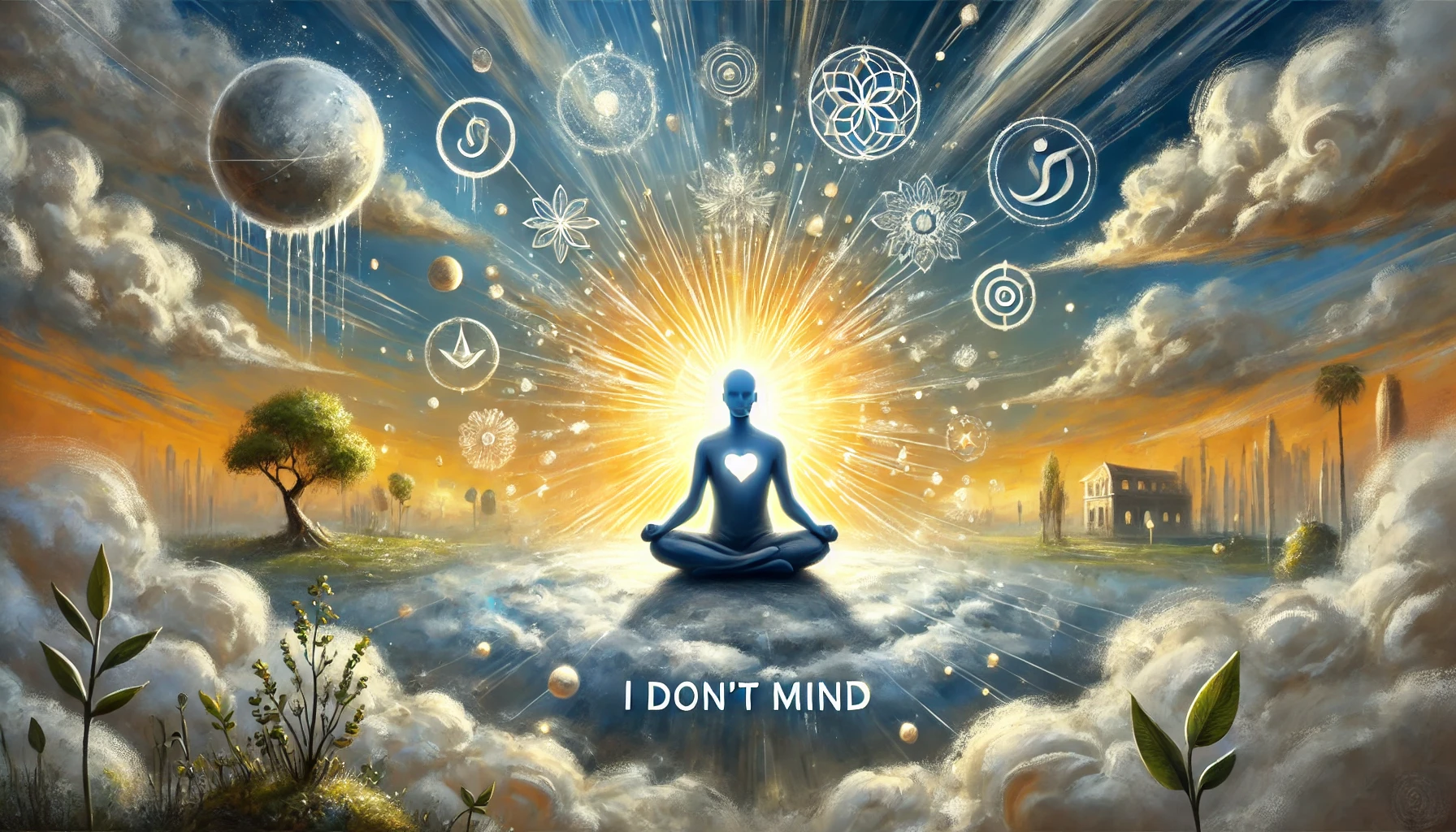
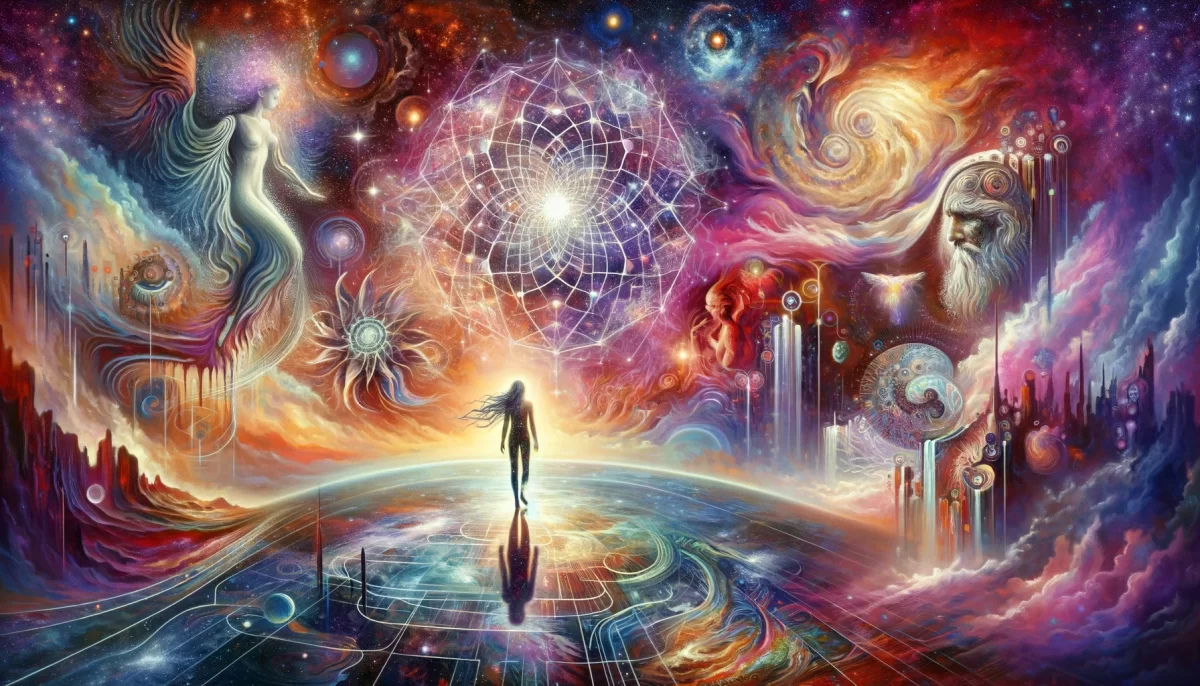

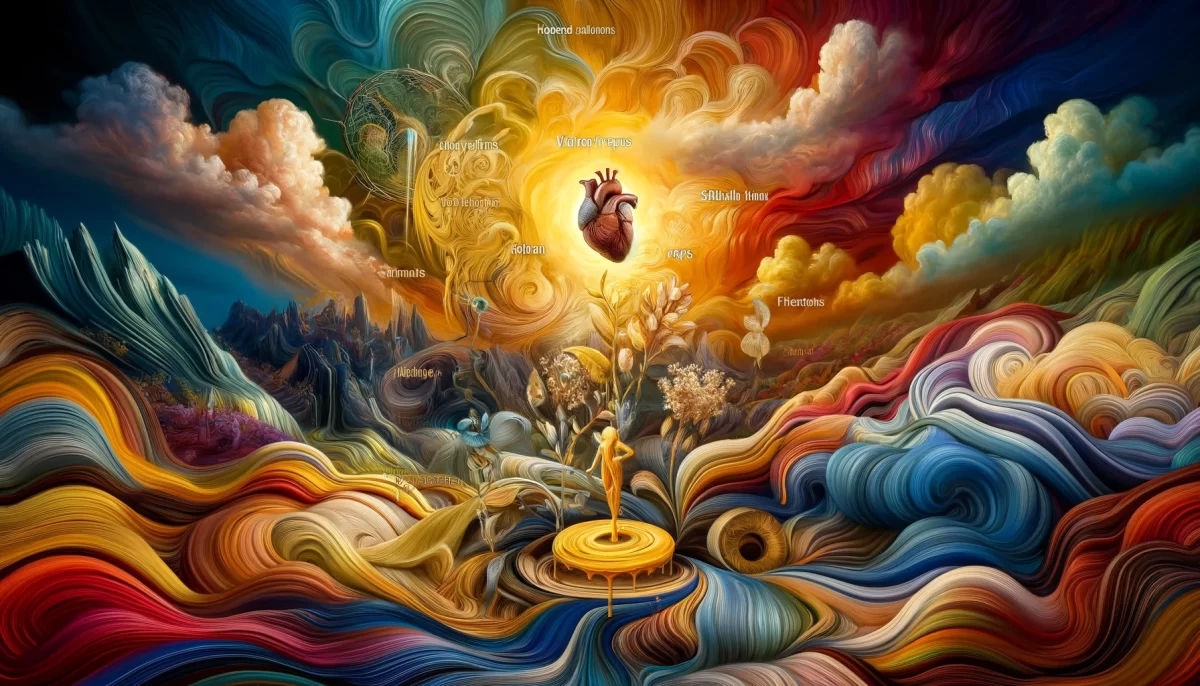
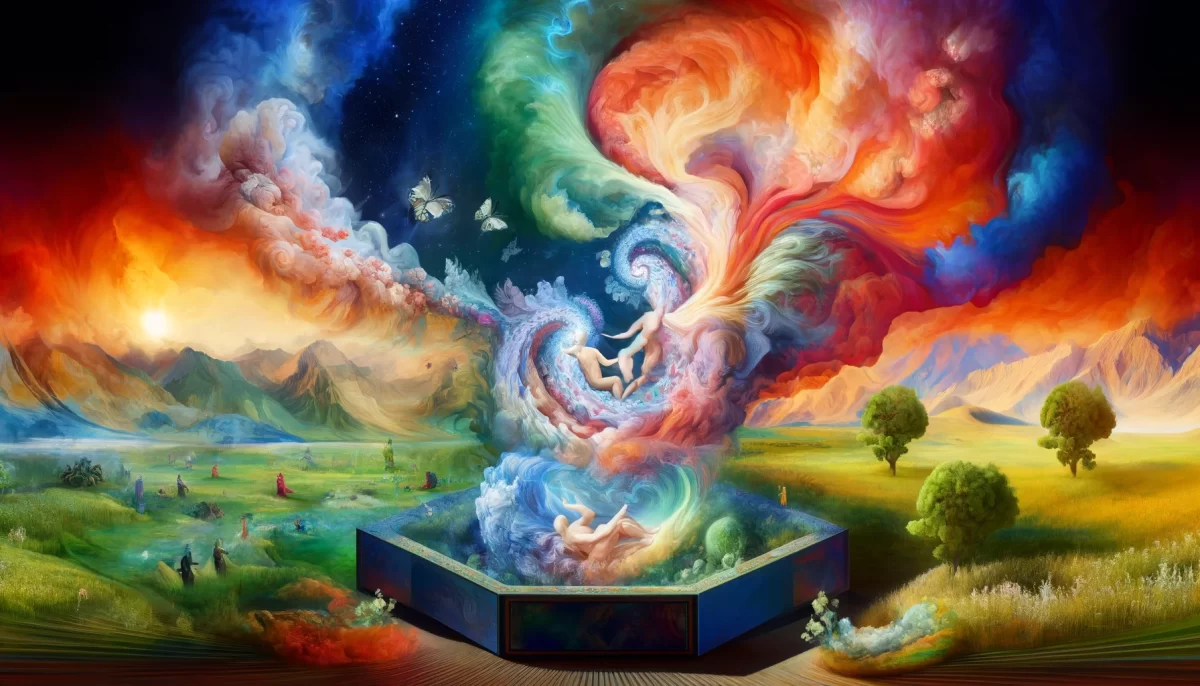
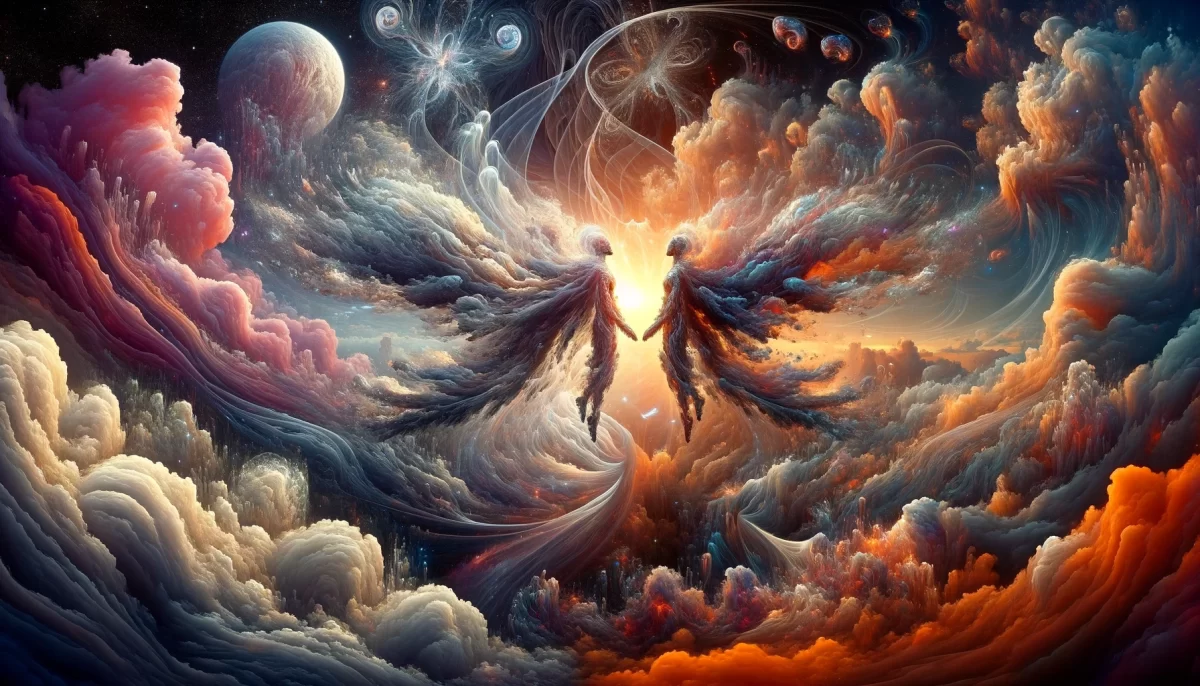
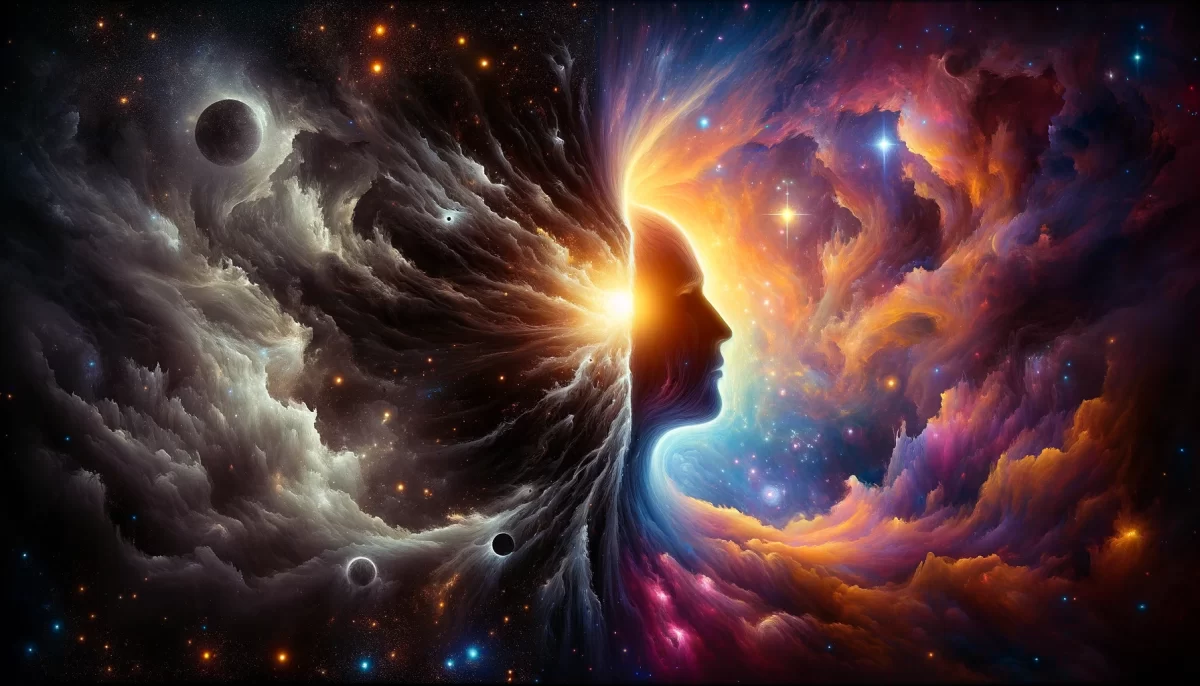

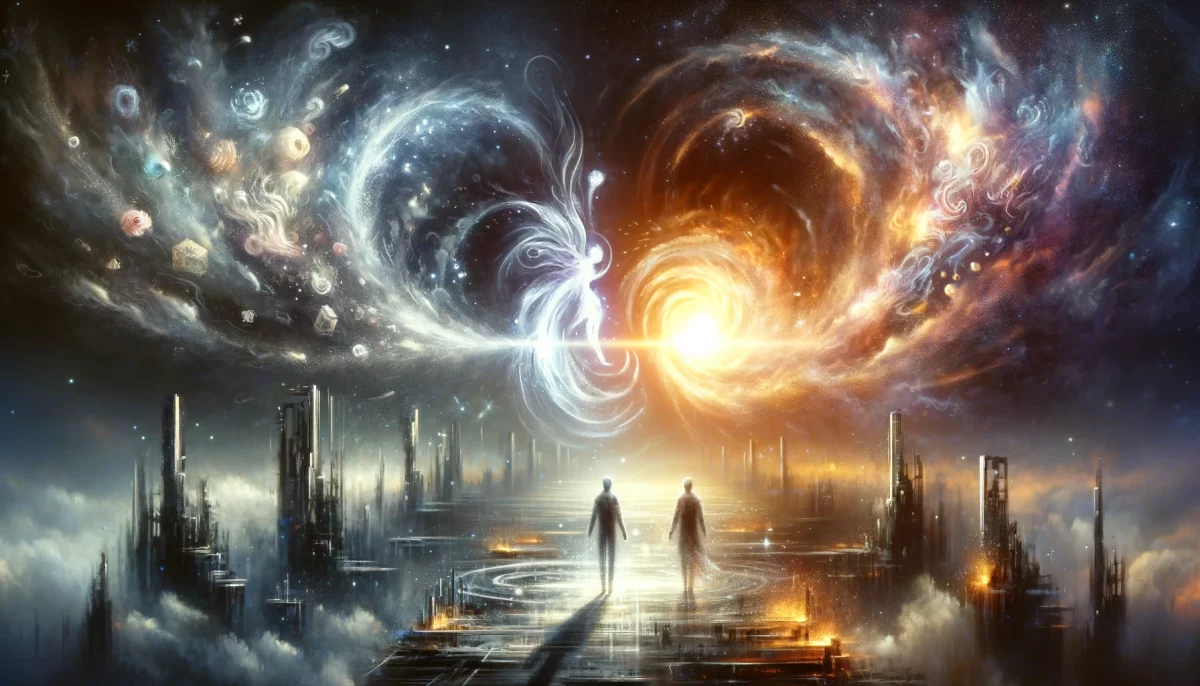
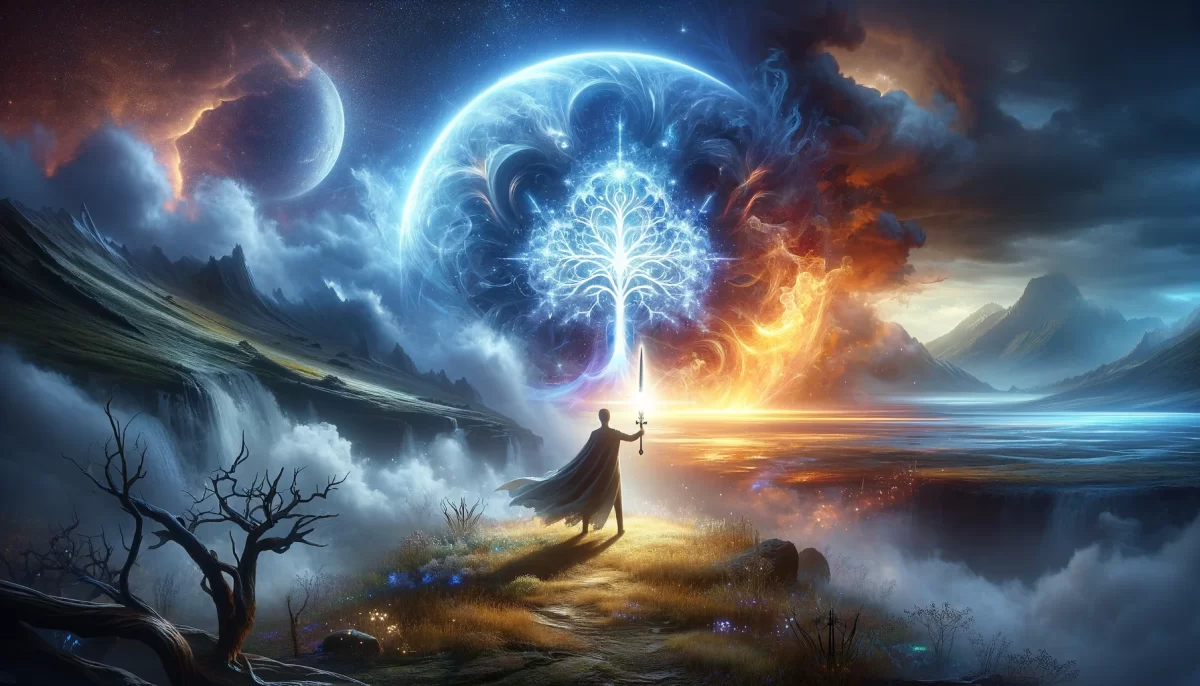
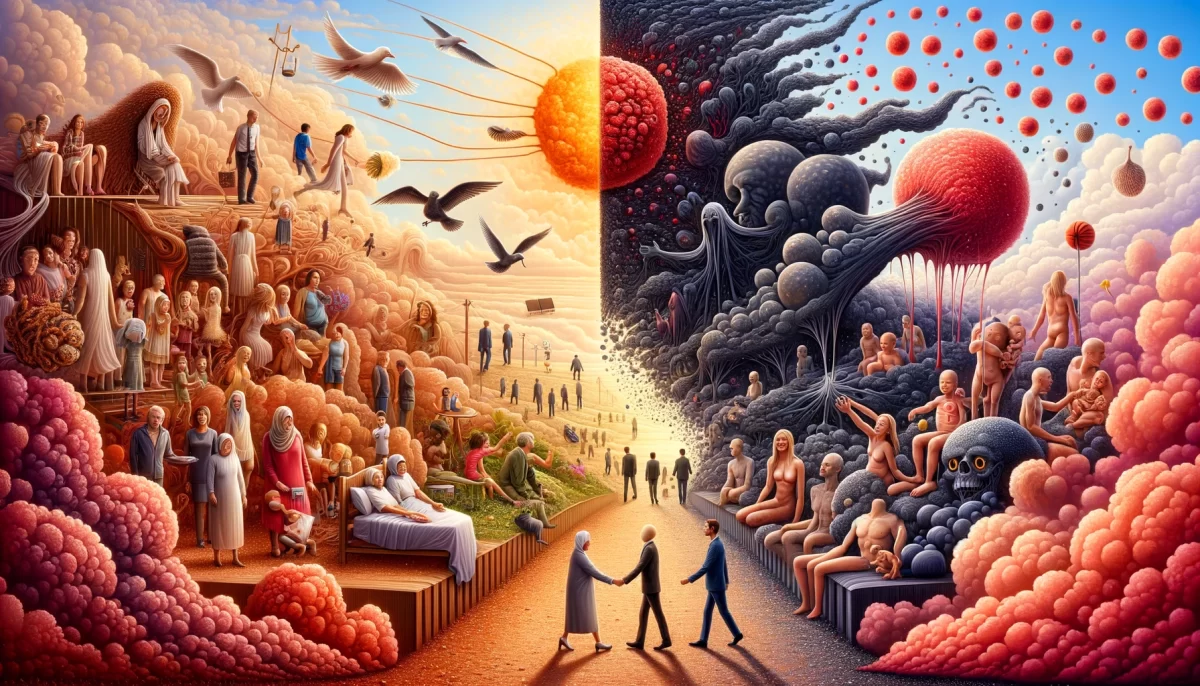
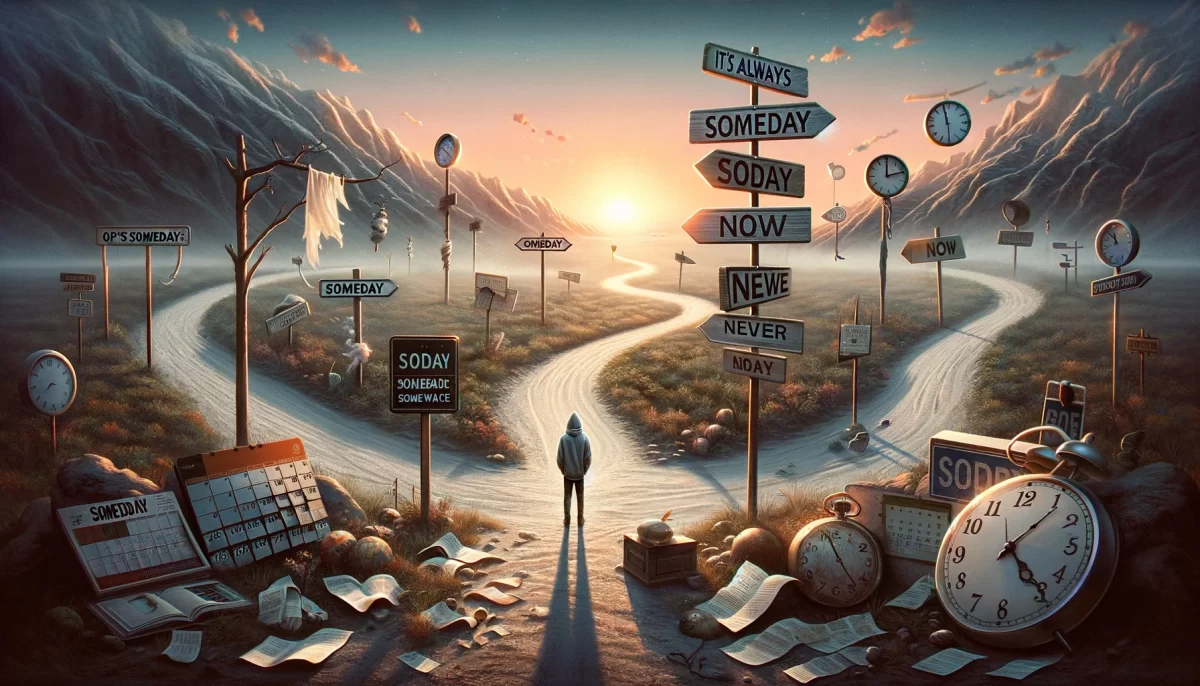

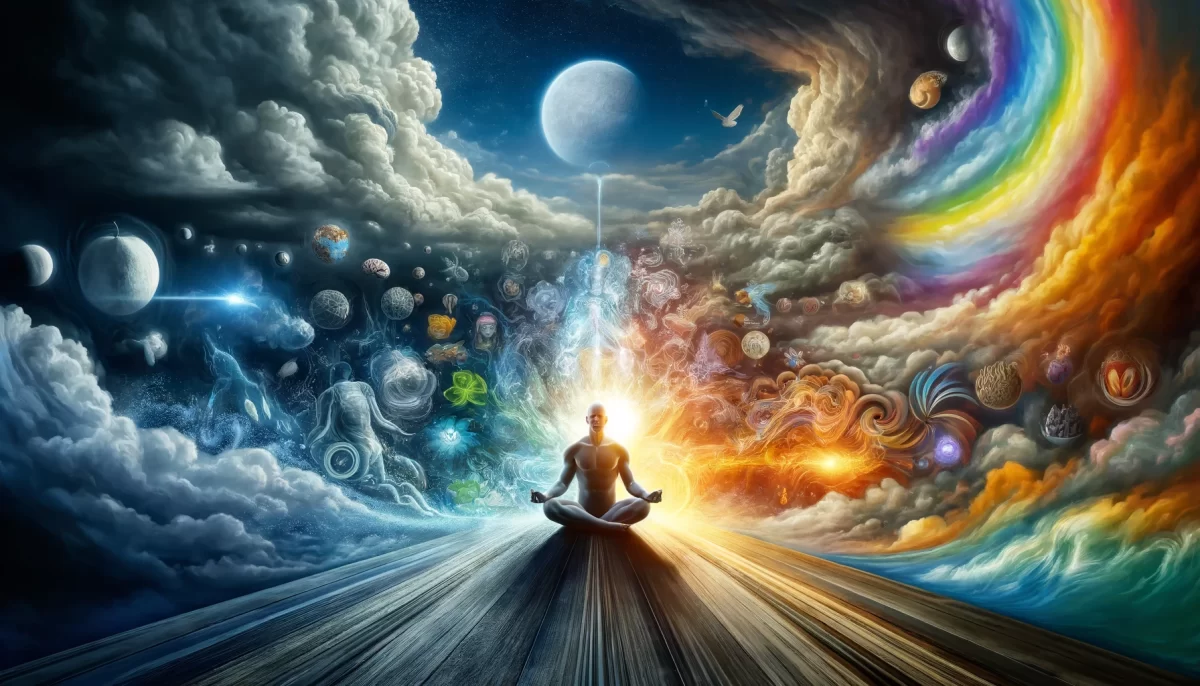

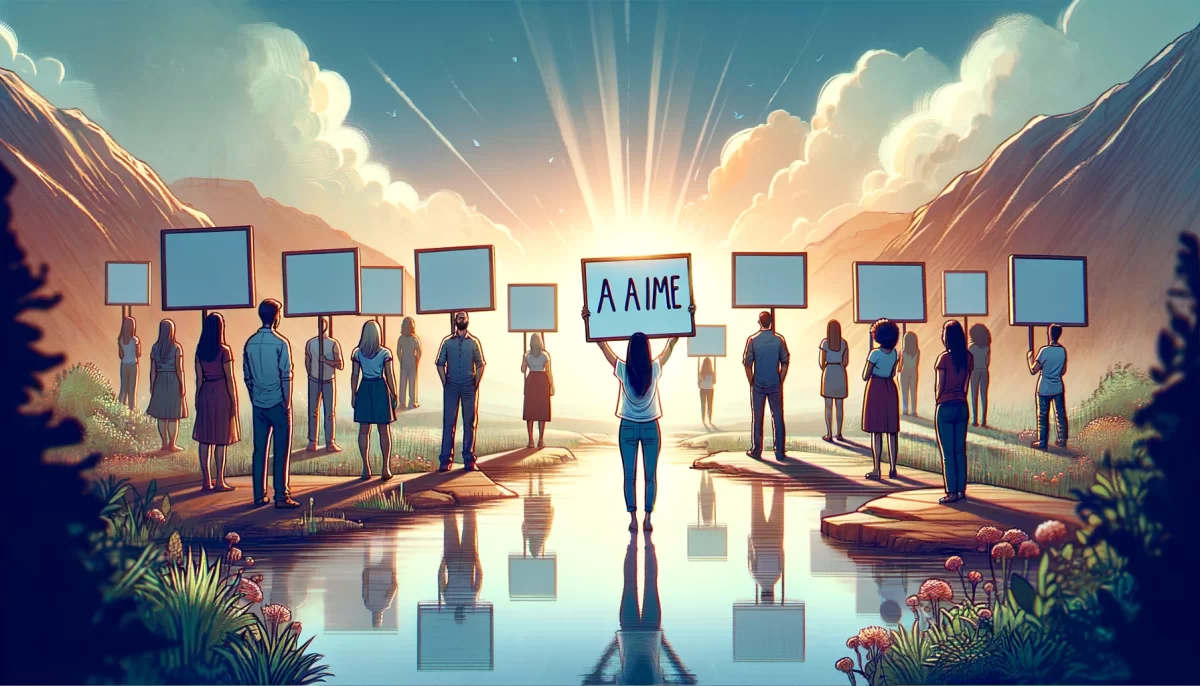
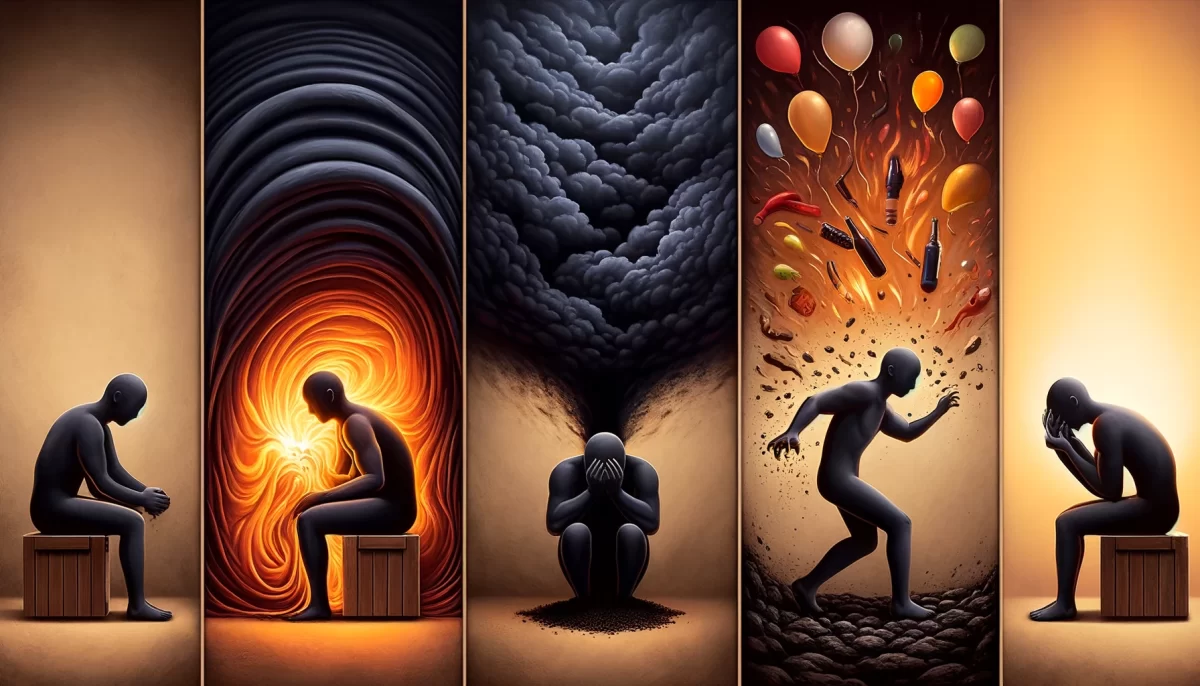

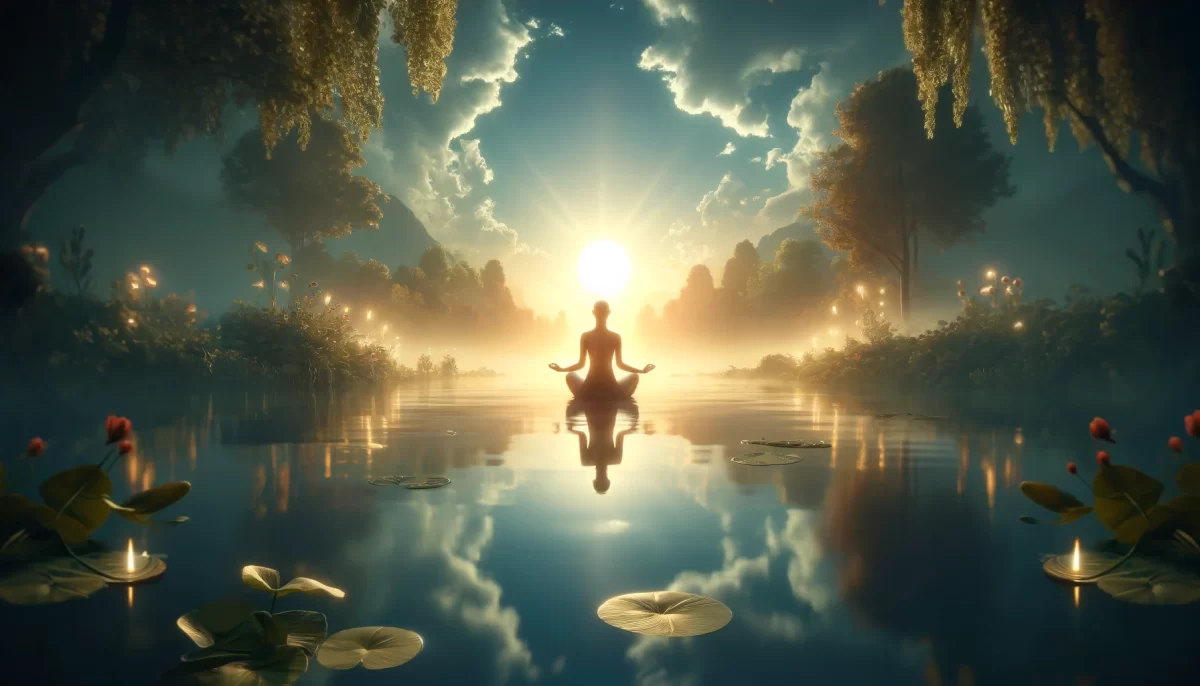
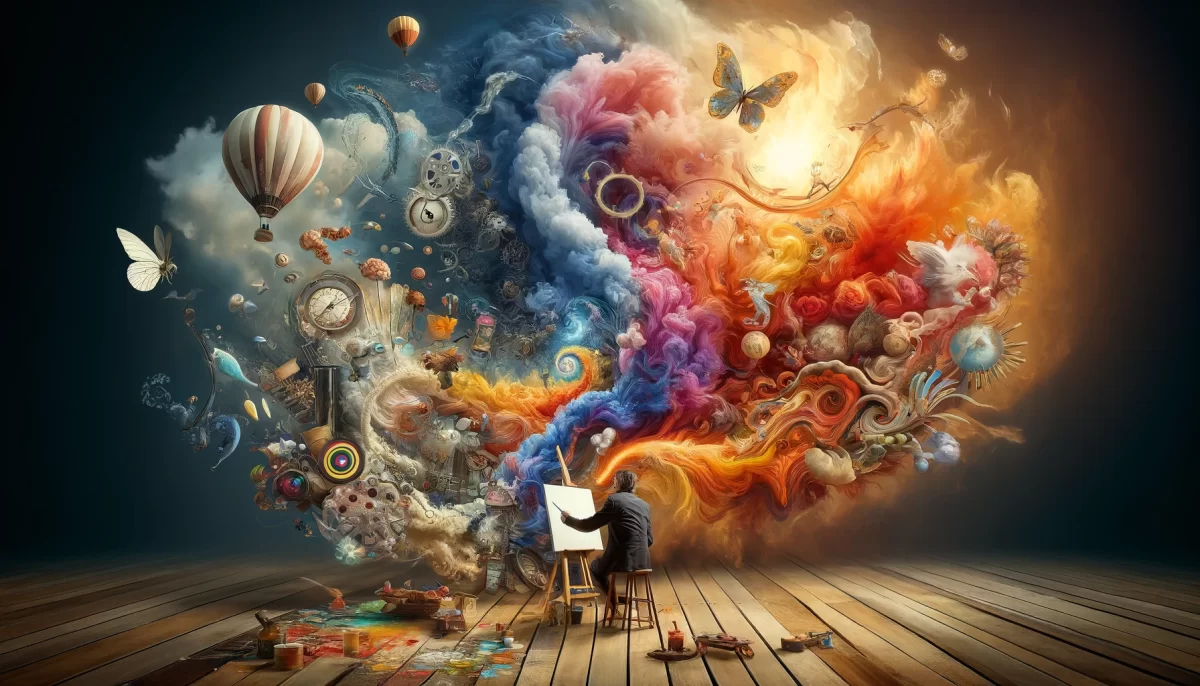

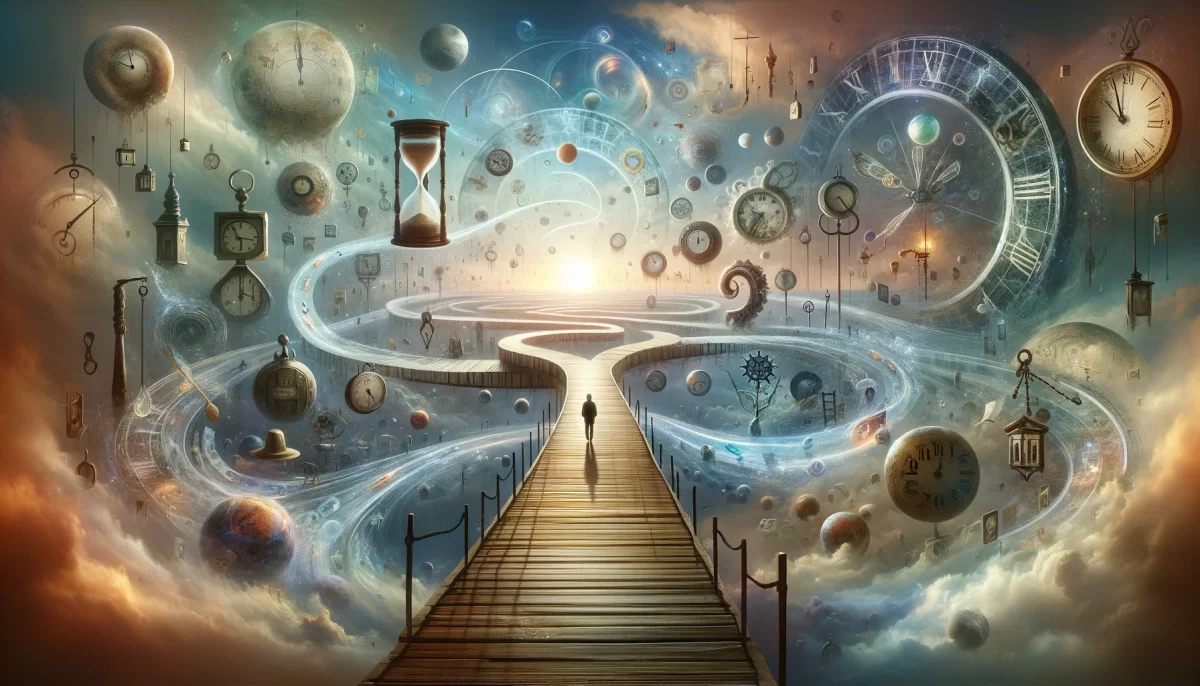
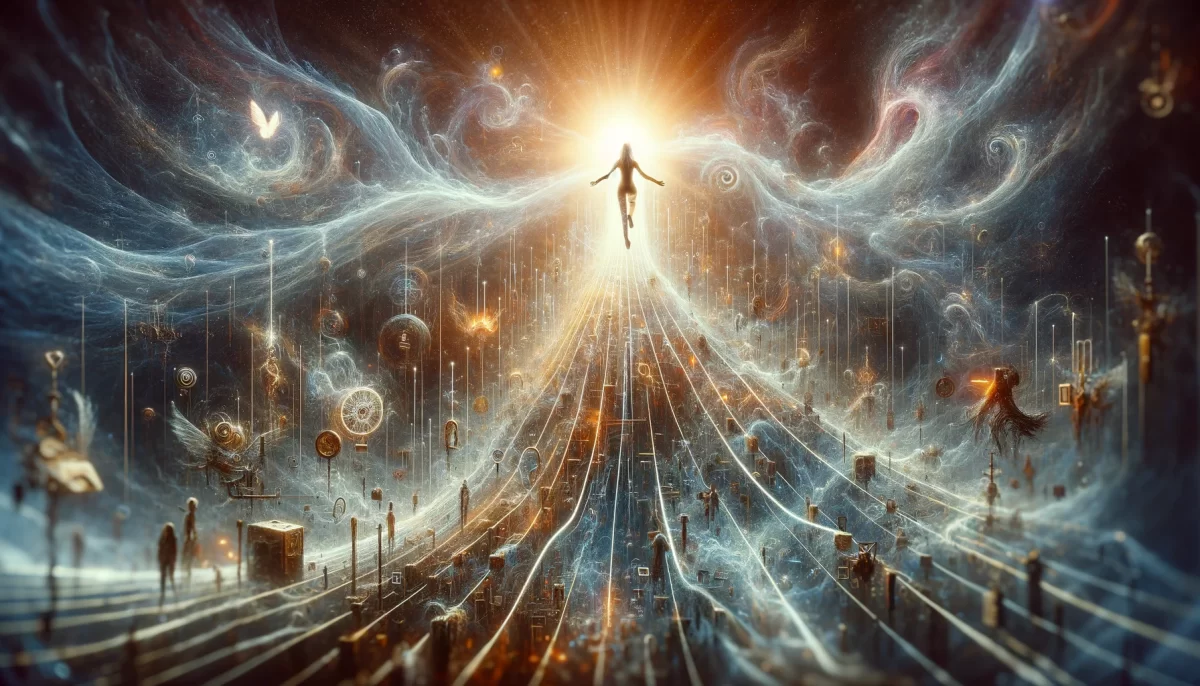

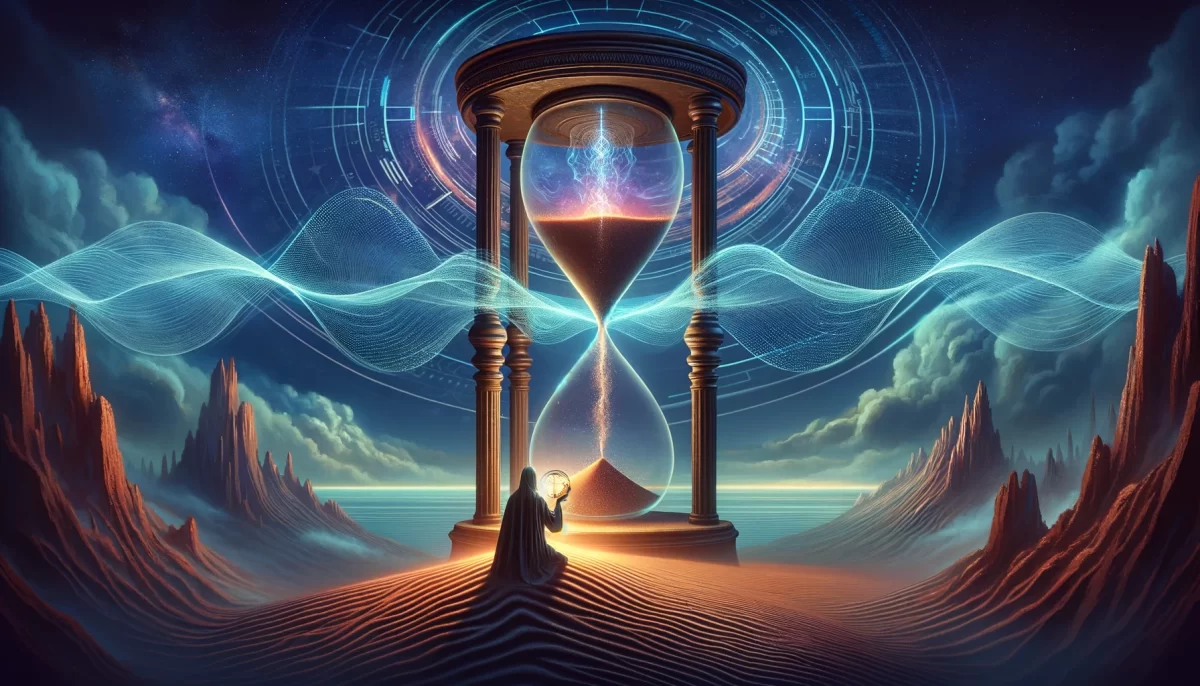
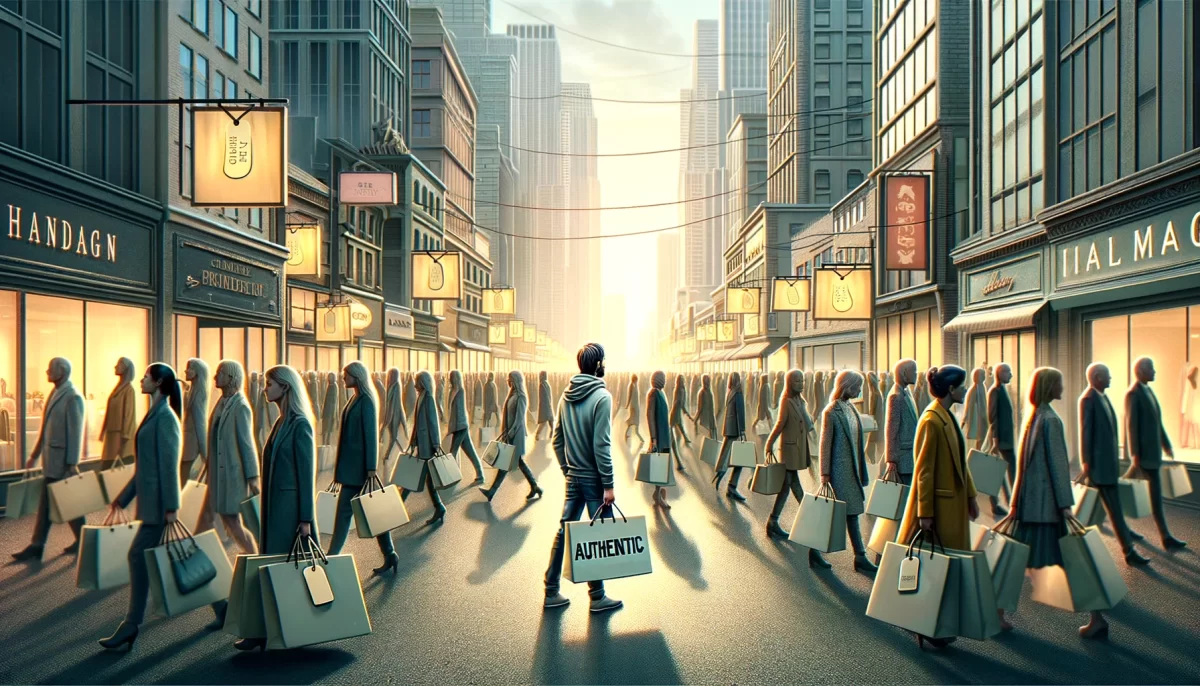
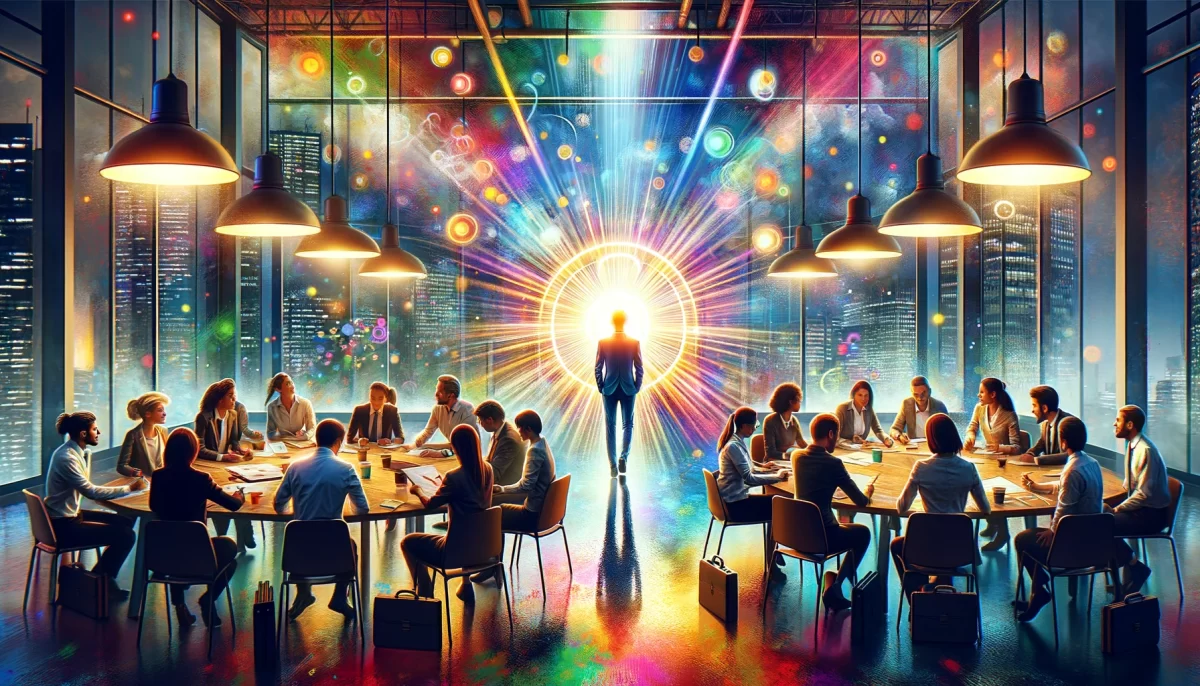



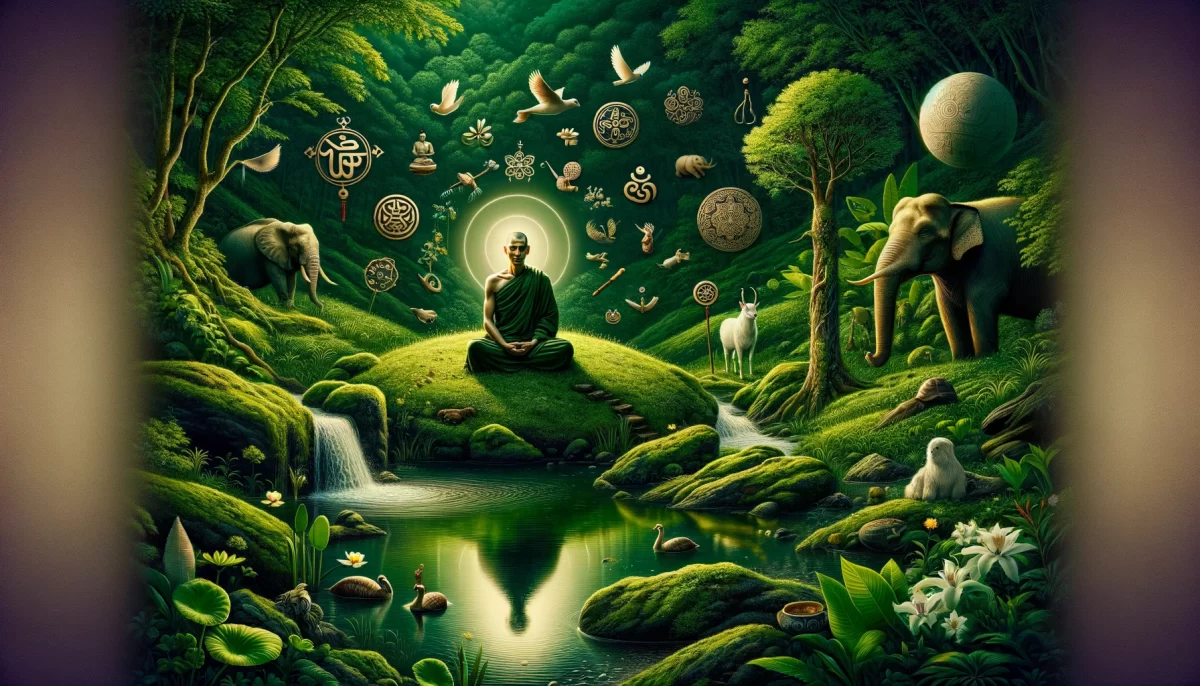
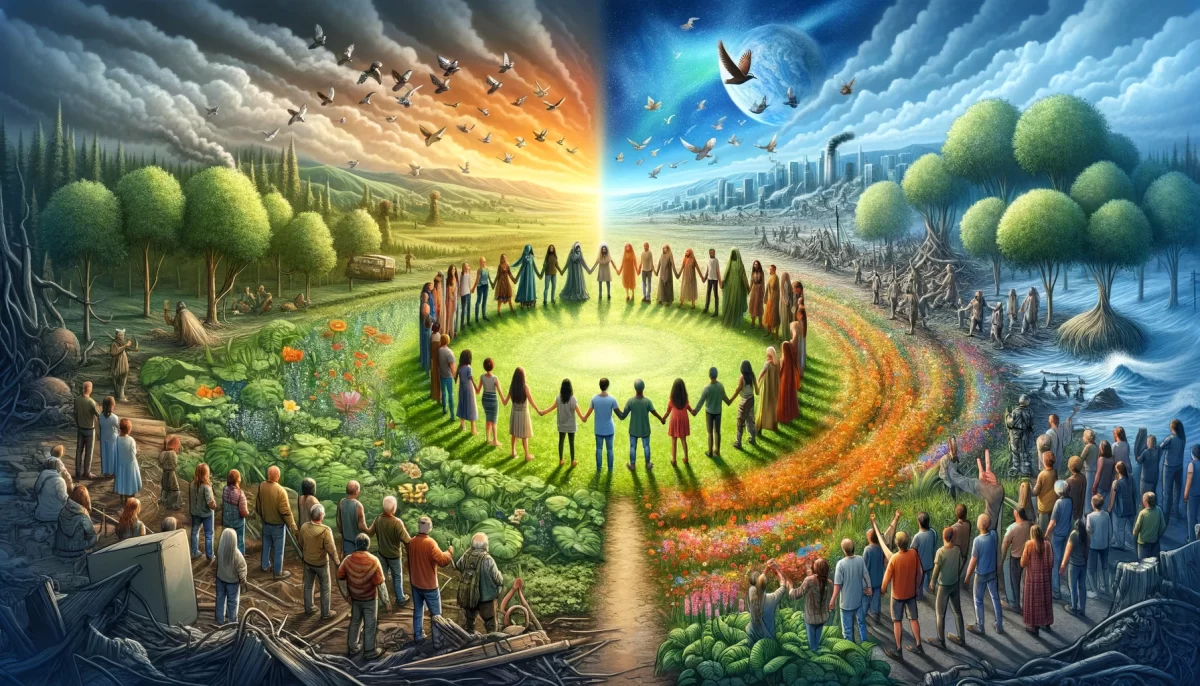
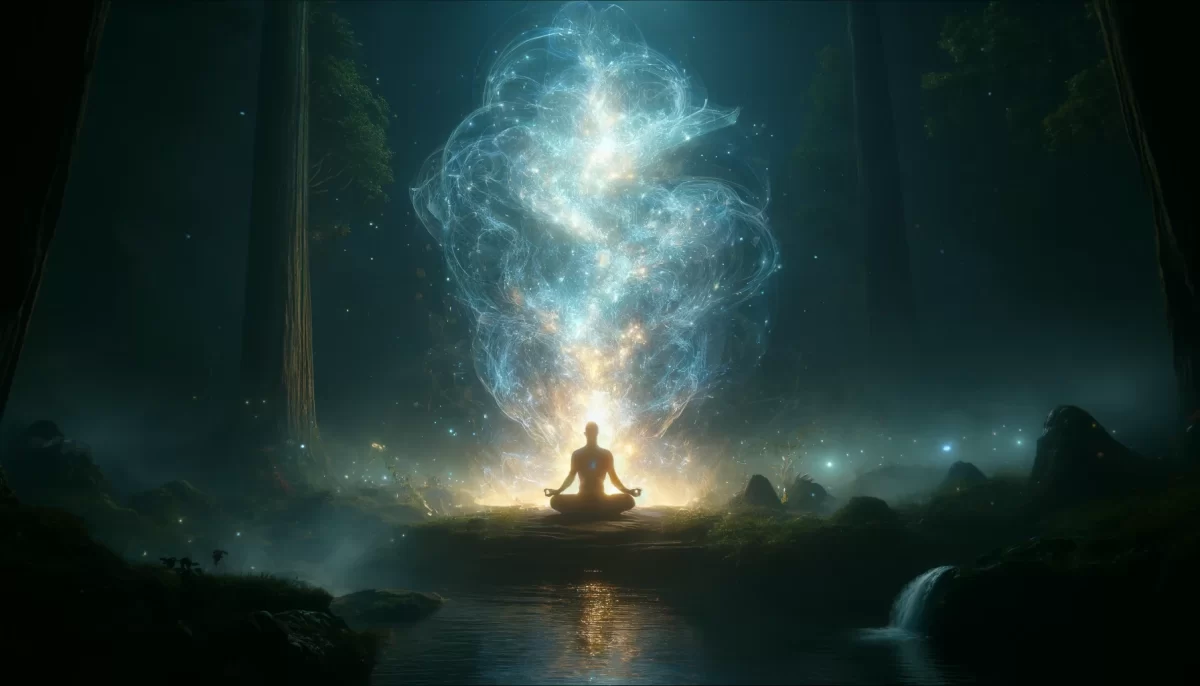
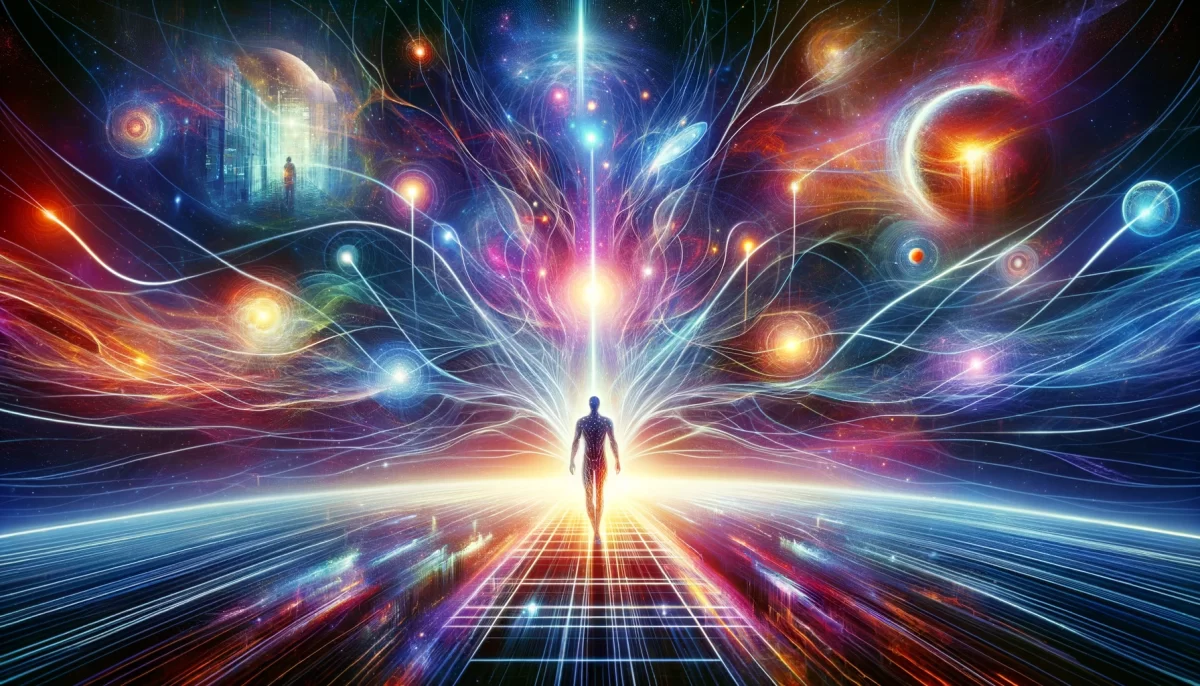

Leave a Reply